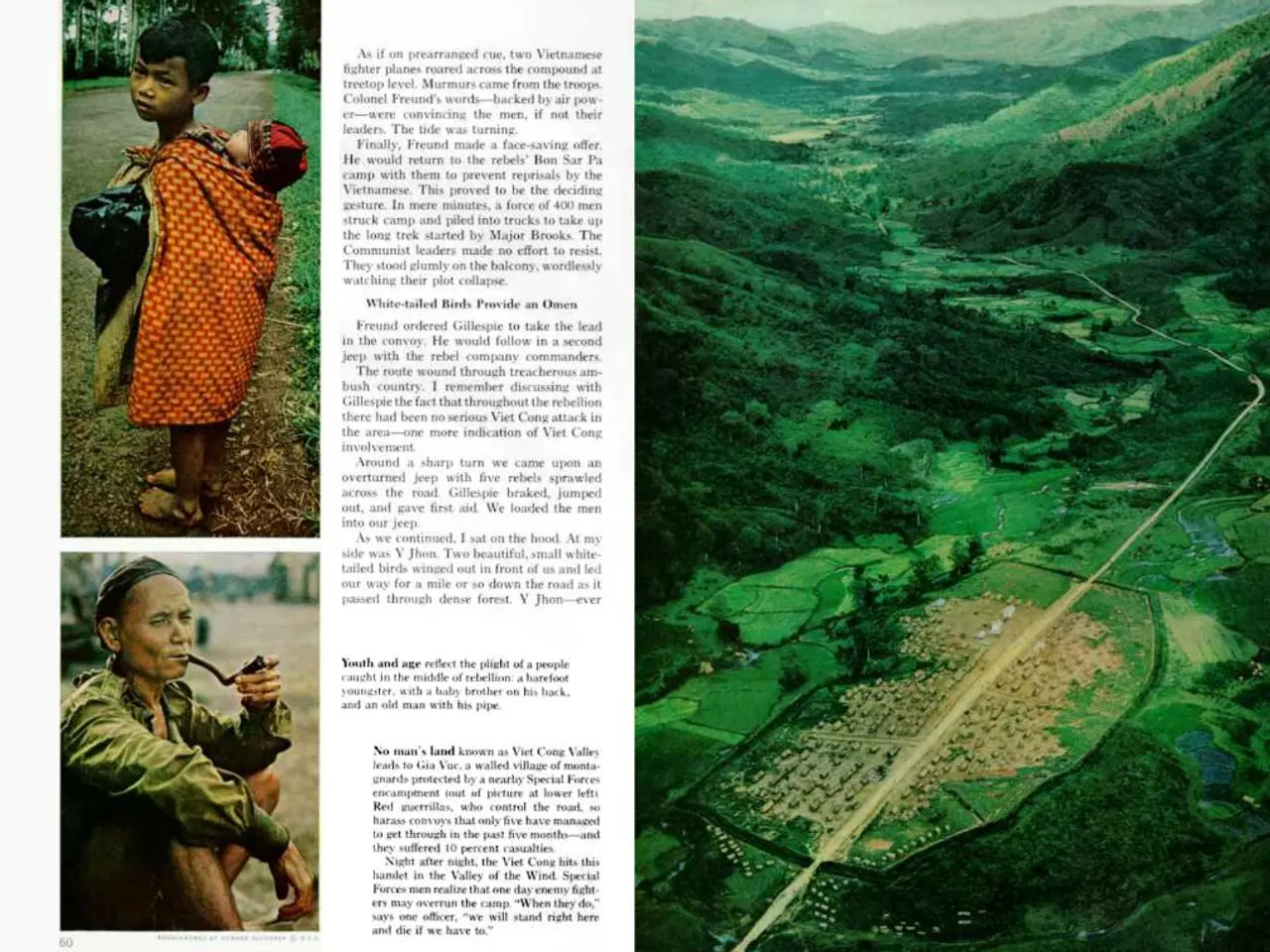Is the European Union adequately upholding human rights in the Central Asian region?
In a series of recent developments, Human Rights Watch (HRW) has called on the European Union (EU) to take a more active role in addressing human rights issues in Central Asia.
Critics in exile from Tajikistan face attacks and abusive extradition requests, and their families and relatives at home are harassed and detained. HRW has expressed concern over the situation, urging the EU to pressure the Tajik authorities to ensure the safety of these individuals.
Similarly, HRW has called on the EU to press the Kyrgyz authorities to hold a genuinely independent inquiry into the death in custody of human rights defender Azimjon Askarov, who died in July 2021. The organisation also wants the EU to use its leverage to show that there will be political consequences if governments fail to translate their rhetoric for reforms into concrete actions.
The EU's response to political turmoil and challenges created by the Covid-19 pandemic should prioritise respect for human rights and the rule of law, according to HRW. Since the outbreak of the pandemic, the EU has allocated more than 134 million euros to the Central Asia region to strengthen health, water, and sanitation systems and address the socio-economic repercussions of the crisis.
However, the situation in some Central Asian countries remains dire. Prison conditions in Tajikistan remain abysmal, with widespread torture and ill-treatment reported in detention. Over 150 political opponents, critics, or their lawyers remain behind bars for lengthy prison terms on political grounds in Tajikistan.
In Kazakhstan, peaceful protesters continue to be harassed or detained, and there are obstacles to independent labor organizing. Journalists continue to be harassed or attacked, and the activist Max Bokaev is still wrongfully jailed. Kazakhstan law does not criminalize domestic violence and fails to provide survivors adequate protection.
In Kyrgyzstan, prolonged political turmoil has put human rights at risk. The pandemic is having a serious impact on Central Asian countries, with some governments limiting access to information about the spread of the virus and restricting freedom of expression in discriminatory or arbitrary ways.
In Uzbekistan, HRW says that there has been little concrete and systemic progress in improving the country's human rights record, despite promises since President Shavkat Mirziyoyev assumed power in 2016.
The situation in Turkmenistan is particularly concerning. The government has yet to recognise the presence of Covid-19 on its territory, and the government tightly controls information in the face of major social and economic fallout. Shortages of subsidized food put people's well-being at risk, and scores of people remain forcibly disappeared for as long as 18 years. It is impossible to determine the exact number of people imprisoned on politically motivated grounds.
HRW has also called on the EU to set consequences for Central Asian governments that fail to meet more ambitious human rights goals. The EU-Central Asia Ministerial meeting, where Josep Borrell met with the foreign ministers of Kazakhstan, Kyrgyzstan, Tajikistan, Turkmenistan, and Uzbekistan, took place on September 8, 2025.
The EU's strategy for Central Asia, adopted in 2019, aims to advocate for upholding human rights standards in the region. An EU-Central Asia Economic Forum is set to be held in 2021, with a focus on promoting an innovative and sustainable approach to economic and business development, and greening the economy in all its aspects.
As the EU continues to engage with Central Asian countries, it is crucial that human rights concerns are at the forefront of discussions. The EU's support can help bring about meaningful change and ensure that the region upholds international human rights standards.
Read also:
- ICE directed to enhance detention conditions following NYC immigrants' allegations of maltreatment
- Israeli finance minister issues warnings about potential annexation of West Bank territories
- United States faces rebuttal from South Africa over allegedly deceitful human rights report and assertions of land expropriation
- Accident at Rodalben Results in Injuries; Geoskop Area near Kusel Affected After Stormy Weather








